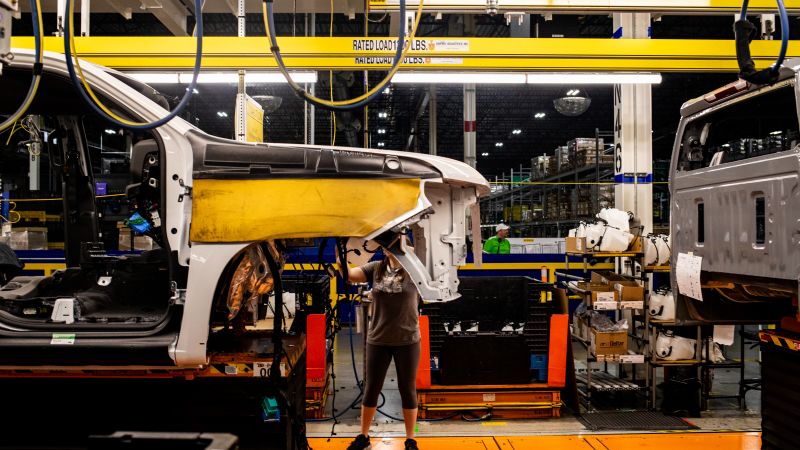
American auto jobs could be lost quickly in tariff war
CNN
Looming tariffs on imported cars could mean more than just higher prices for buyers and lower profits for automakers – it could also mean layoffs for American autoworkers.
Looming tariffs on imported cars could mean more than just higher prices for buyers and lower profits for automakers – it could also mean layoffs for American autoworkers. President Donald Trump says his auto tariffs will remake the industry, shifting production of both cars and auto parts back to American plants. But experts say that will take years to accomplish, if it happens at all. In the meantime, it will take a toll on US car and auto parts production. The auto supply chain is delicate and global. Even if only Mexican and Canadian assembly plants shut down due to lost access to the US market, that will affect US suppliers sending parts to those plants. And some US-built cars are destined for Canada and Mexico. All that could see automakers and parts suppliers trimming production – and less output means fewer US jobs. “The automakers are in a serious predicament,” said Patrick Anderson, president of the Anderson Economic Group, a Michigan-based think tank. “They’re going to have to make tough decisions about what production to continue, what not to make… We expect implementation of these tariffs to affect jobs across the United States.” Anderson said that in addition to manufacturing job losses, other auto-related US jobs will likely be impacted in sectors like dealerships and transportation. The Trump administration insists that tariffs will be a net positive for US jobs, with the president forecasting “tremendous growth” for the American auto industry. Automakers will respond by shifting production quickly to US factories at relatively little cost, according to Trump and his supporters.

President Donald Trump and his advisers said this was the plan all along: Scare the bejesus out of the world by announcing astronomically high tariffs, get countries to come to the negotiating table, and — with the exception of China — back away from the most punishing trade barriers as America works out new trade agreements around the globe.

If paying $1,000 for a new iPhone already sounded expensive, consumers should brace for even greater sticker shock later this year. President Donald Trump’s tariffs on foreign goods – specifically those sourced from China – are expected to heighten the prices of everyday tech products, from iPhones to laptops, cars and even smaller gadgets like headphones and computer mice.

The US stock market, fresh off its third-best day in modern history, is sinking back into reality: Although President Donald Trump paused most of his “reciprocal” tariffs, his other massive import taxes have already inflicted significant damage, and the economy won’t easily recover from the fallout.

 Run 3 Space | Play Space Running Game
Run 3 Space | Play Space Running Game Traffic Jam 3D | Online Racing Game
Traffic Jam 3D | Online Racing Game Duck Hunt | Play Old Classic Game
Duck Hunt | Play Old Classic Game








